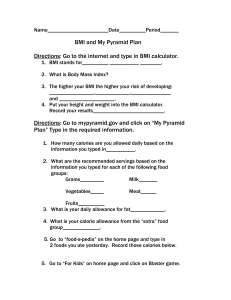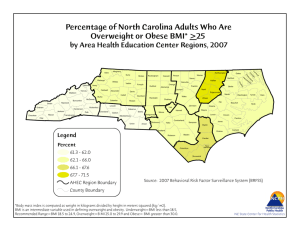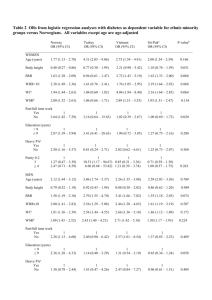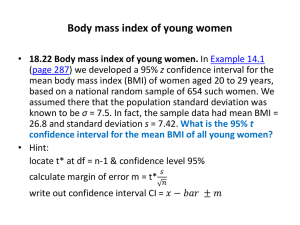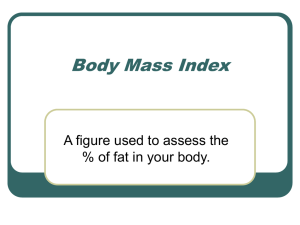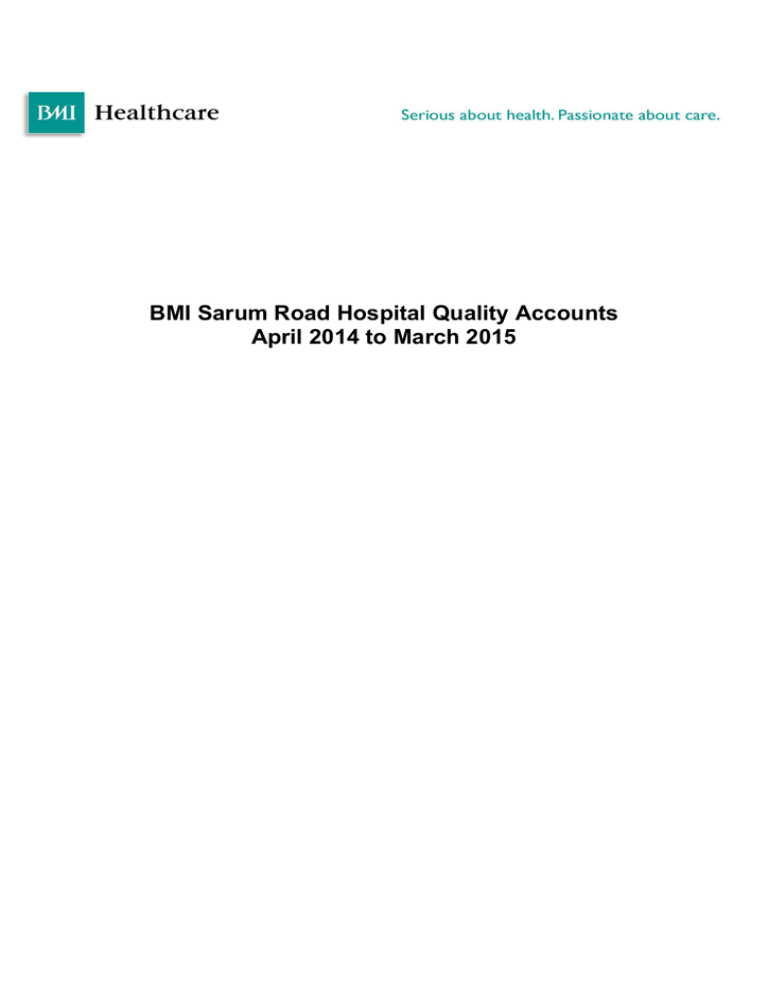
BMI Sarum Road Hospital Quality Accounts
April 2014 to March 2015
Chief Executive’s Statement
I am pleased to welcome you to our Quality Accounts 2015.
Now in their sixth year, Quality Accounts continue to provide a truly
objective metric for us, and others, to gauge the quality of our 59
hospitals and the services they provide against a broad range of
criteria.
The past year has seen another step change in the way healthcare
providers are externally challenged on the quality they provide.
Following a spate of high profile controversies around patient safety,
the Care Quality Commission, the UK’s health regulator, has
introduced a new inspection regime designed to raise standards.
No healthcare provider can afford to be complacent and whilst I
believe BMI’s hospitals provide safe and effective care, we should
always be striving for improvement.
To this end we recently introduced a new Quality Strategy, which
articulates how we will provide the best possible care and strive for continual improvement, and live up to
our brand promise to be “serious about health, passionate about care”. Its four core themes – safety,
clinical effectiveness, patient experience and quality assurance – provide our staff with the platform to
consistently deliver the care patients, their insurers, and commissioners expect and deserve.
BMI hospitals have been enthusiastic participants in the pilot programme of the new CQC inspection
regime for private providers, and to ensure our facilities are prepared we have developed a selfassessment tool to enable hospitals to compare their perceptions of themselves with those of the external
inspectors. The rigorous inspection process itself also underpins the sharing of best practice between
hospitals which further drives improvement and consistency.
BMI Healthcare strives to provide the best care but the ultimate arbiters of whether we succeed are our
patients. We are committed to monitoring every aspect of the care we provide, and the results of the
detailed questionnaires we ask patients to complete inform improvement. We aim to provide a consistent,
high quality patient experience and an environment that empowers our consultants to excel. Providing a
dependably high quality of care requires constant focus on improvement; the most recent independent
research conducted for BMI shows that over 98% of our patients rate their care as excellent or very good.
The information available here has been reviewed by the Clinical Governance Board and I declare that as
far as I am aware the information contained in these reports is accurate. Finally I would like to thank all
the staff whose application, professionalism and ceaseless commitment to improvement is recognized
here and in the positive experiences of the patients we care for. Since I joined BMI late last year, I have
witnessed this firsthand on my many visits to our hospitals and I am committed to ensuring we build on
that success.
Jill Watts, Group Chief Executive
Hospital Information
BMI Sarum Road Hospital has 48 beds with all rooms offering the privacy and comfort of ensuite facilities, satellite TV, telephone and Wi-Fi.
The hospital has two theatres, a day care unit and a high dependency unit. These facilities
combined with the latest in technology and on-site support services, enable our consultants to
undertake a wide range of procedures from routine investigations to complex surgery. This
specialist expertise is supported by caring and professional medical staff, with dedicated nursing
teams and Resident Medical Officers on duty 24 hours a day, providing care within a friendly
and comfortable environment.
An ongoing programme of redecoration in patient rooms, consulting rooms and public spaces
was commenced throughout the hospital during the year.
33% of NHS patients are treated as part of the overall caseload, insured and self-pay patients
making up the rest.
BMI Healthcare are registered as a provider with the Care Quality Commission (CQC) under the
Health & Social Care Act 2008. BMI Sarum Road Hospital is registered as a location for the
following regulated services:•
•
•
•
Treatment of disease, disorder and injury
Surgical procedures
Diagnostic and screening
Family Planning
The CQC carried out an unannounced inspection on 9th December 2013 and found fully
compliant
Standards of treating people with respect and involving them in their care
Standards of providing care, treatment & support which meets people's needs
Standards of caring for people safely & protecting them from harm
Standards of staffing
Standards of management
BMI Sarum Road Hospital has a local framework through which clinical effectiveness, clinical
incidents and clinical quality is monitored and analysed. Where appropriate, action is taken to
continuously improve the quality of care. This is through the work of a multidisciplinary group
and the Medical Advisory Committee.
Regional Clinical Quality Assurance Groups monitor and analyse trends and ensure that the
quality improvements are operationalised. There has been development of
At corporate level the Clinical Governance Board has an overview and provides the strategic
leadership for corporate learning and quality improvement.
There has been ongoing focus on robust reporting of all incidents, near misses and outcomes.
Data quality has been improved by ongoing training and database improvements. New reporting
modules have increased the speed at which reports are available and the range of fields for
analysis. This ensures the availability of information for effective clinical governance with
implementation of appropriate actions to prevent recurrences in order to improve quality and
safety for patients, visitors and staff.
At present we provide full, standardised information to the NHS, including coding of procedures,
diagnoses and co-morbidities and PROMs for NHS patients.There are additional external
reporting requirements for CQC, Public Health England (Previously HPA) CCGs and Insurers
BMI is a founding member of the Private Healthcare Information Network (PHIN) UK – where
we produce a data set of all patient episodes approaching HES-equivalency and submit this to
PHIN for publication. The data is made available to common standards for inclusion in
comparative metrics, and is published on the PHIN website http://www.phin.org.uk. This website
gives patients information to help them choose or find out more about an independent hospital
including the ability to search by location and procedure.
1. Safety
1.1 Infection prevention and control
The focus on infection prevention and control continues under
the leadership of the Group Head of Infection Prevention and
Control, in liaison with the link nurse in BMI Sarum Road
Hospital.
The focus on infection prevention and control continues under
the leadership of the Group Director of Infection Prevention and
Control and Group Head of Infection Prevention and Control, in
liaison with the Infection Prevention and Control Lead at BMI
Sarum Road Hospital.
We have had: •
Zero MRSA bacteraemia cases /100,000 bed days
•
Zero MSSA bacteraemia cases/100,000 bed days
•
Zero E.coli bacteraemia cases/100,000 bed days
•
Zero cases of hospital apportioned Clostridium difficile in the last 12 months.
•
SSI data is also collected and submitted to Public Health England for Orthopaedic
surgical procedures. Our rates of infection are;
o
o
Hips - 0.94% (Superficial surgical site only)
Knees – 1.11% (Superficial surgical site only)
Local hospital audits are undertaken using the Quality Improvement Tool Audit from the IPS.
BMI Sarum Road Hospital also carries out the High Impact Intervention Care Bundle Audits
each quarter on Urinary Catheter Care, Peripheral Vascular Access Devices and Surgical Site
Infection. Workshops were held in all departments to improve staff knowledge of all the
necessary steps required to comply with these High Impact Intervention audits.
Each year the hospital participates in a sharps audit conducted by Daniels Healthcare.
In each department we now have an Aseptic Non Touch Technique (ANTT) assessor and,
combined with an e-learning module, they are assessing all clinical staff and their ANTT
capabilities.
Environmental cleanliness is also an important factor in infection prevention and our patients
rate the cleanliness of our facilities highly.
Very good
Bathroom
cleanliness
FY14
24%
Excellent
Total
BMI
24%
Room
cleanliness
FY14
24%
BMI
24%
72%
70%
70%
70%
96%
94%
94%
94%
1.2 Patient Led Assessment of the Care Environment (PLACE)
We believe a patient should be cared for with compassion and dignity in a clean, safe environment.
Where standards fall short, they should be able to draw it to the attention of managers and hold the
service to account. PLACE assessments will provide motivation for improvement by providing a clear
message, directly from patients, about how the environment or services might be enhanced.
In 2013 we introduced PLACE, which is the new system for assessing the quality of the patient
environment, replacing the old Patient Environment Action Team (PEAT) inspections.
The assessments involve patients and staff who assess the hospital and how the environment
supports patient’s privacy and dignity, food, cleanliness and general building maintenance. It focuses
entirely on the care environment and does not cover clinical care provision or how well staff are
doing their job.
The results will show how hospitals are performing nationally and locally. Results of the hospital are
shown below:
2013
2014
Cleanliness
75.73%
90.86%
Food and Hydration
87.80%
98.26%
Privacy and Dignity
85.59%
93.55%
Condition, Appearance and Maintenance
73.00%
89.90%
The latest audit was undertaken on 13th April 2015 but the results are not yet published. A
comprehensive action plan is in place for each area reviewed and has been RAG rated
according to infection control risk or how strongly the patient assessors felt about a particular
issue. Comments were made regarding aspects of the exterior of the hospital which have been
communicated the Grounds Maintenance contractor.
1.3 Venous Thrombo-embolism (VTE)
BMI Healthcare, holds VTE Exemplar Centre status by the Department of Health across its
whole network of hospitals including, BMI Sarum Road Hospital. BMI Healthcare was awarded
the Best VTE Education Initiative Award category by Lifeblood in February 2013 and were the
Runners up in the Best VTE Patient Information category.
We see this as an important initiative to further assure patient safety and care. We audit our
compliance with our requirement to VTE risk assessment every patient who is admitted to our
facility and the results of our audit on this has shown 100%. The audits include monthly
healthcare record audits, quarterly VTE audits, NHS Safety Thermometer data and CQUIN
data. We see this as an important initiative to further assure patient safety and care.
BMI Sarum Road Hospital reports the incidence of Venous Thromboembolism (VTE) through
the corporate clinical incident system. It is acknowledged that the challenge is receiving
information for patients who may return to their GPs or other hospitals for diagnosis and/or
treatment of VTE post discharge from the Hospital. As such we may not be made aware of
them. We continue to work with our Consultants and referrers in order to ensure that we have
as much data as possible.
BMI Sarum Road Hospital has reported 1 PE (0.025 per 100 admissions) and no DVTs in the
last year. A Root Cause Analysis has been undertaken and found that the PE was unavoidable.
2. Effectiveness
2.1 Patient reported Outcomes (PROMS)
Patient Reported Outcome Measures (PROMs) are a means of collecting information on the
effectiveness of care delivered to NHS patients as perceived by the patients themselves.
PROMs is a Department of Health led programme.
Latest results can be found by going on the online SOLAR system provided to you by Quality
Health
For the current reporting period, the tables below demonstrate that the health gain between
Questionnaire 1 (pre-operative) and Questionnaire 2 (post–operative) for patients undergoing
hip replacement and knee replacement at BMI Sarum Road Hospital. No scores provided as
less than 30 patients went through this pathway during the time period in question.
To improve the Health Gain for patients, a Physiotherapy In-patient lead post has been created
by BMI Healthcare.
April 14 – September 14
Oxford Hip Score average
Health gain between reporting
Q1
Q2
periods
BMI Sarum Road Hospital
England
*
*
*
18.16
40.081
21.922
Copyright © 2013, The Health and Social Care Information Centre. All Rights Reserved.
April 14 – September 14
BMI Sarum Road Hospital
England
Oxford Knee Score average
Health gain between reporting
Q1
Q2
periods
*
*
*
19.401
36.103
16.702
Copyright © 2013, The Health and Social Care Information Centre. All Rights Reserved.
2.2 Enhanced Recovery Programme (ERP)
The ERP is about improving patient outcomes and speeding up a patient’s recovery after
surgery. ERP focuses on making sure patients are active participants in their own recovery and
always receive evidence based care at the right time. It is often referred to as rapid recovery, is
a new, evidence-based model of care that creates fitter patients who recover faster from major
surgery. It is the modern way for treating patients where day surgery is not appropriate.
ERP is based on the following principles:1. All Patients are on a pathway of care
a. Following best practice models of evidenced based care
b. Reduced length of stay
2. Patient Preparation
a. Pre Admission assessment undertaken
b. Group Education sessions
c. Optimizing the patient prior to admission – i.e HB optimisation, control comorbidities, medication assessment – stopping medication plan.
d. Commencement of discharge planning
3. Proactive patient management
a. Maintaining good pre-operative hydration
b. Minimising the risk of post-operative nausea and vomiting
c. Maintaining normothermia pre and post operatively
d. Early mobilisation
4. Encouraging patients have an active role in their recovery
a. Participate in the decision making process prior to surgery
b. Education of patient and family
c. Setting own goals daily
d. Participate in their discharge planning
BMI Sarum Road Hospital has a local ERP working party to fully implement best practice model
pathways. Areas that are being focused on are:
•
Patient education through establishing ‘joint classes’
•
Review of medication used in Spinal Anesthesia
•
Reduce Average Length of Stay (AVLOS)
2.3 Unplanned Readmissions within 31 days and unplanned returns to theatre.
Unplanned readmissions and unplanned returns to theatre are normally due to a clinical
complication related to the original surgery.
Unplanned
Unplanned
Unplanned Readmission within 31 days (Rate per 100 Discharges)
Readmission within
Readmission
within
Unplanned
31 days (RateReadmission
per
31
days
(Rate
per
within
100 Discharges),
100
Discharges),
31 days (Rate per
2009, 0.7042100 Discharges), 2011, 0.6527 Unplanned
2010, 0.5523
Readmission within
31 days (Rate per
100 Discharges),
2012, 0.4305
2009
2010
2011
2012
Unplanned
Unplanned
Unplanned
Readmission within
Readmission 2013
within
Readmission within
31 days (Rate per
31
days
(Rate
per
2014
100 Discharges),31 days (Rate per
100
Discharges),
2013, 0.1886 100 Discharges),2015, 0.1725
2015
2014, 0.1590
The readmission rate has slightly increased as, unusually, three patients had been discharged
after differing daycase procedures but had to be readmitted within hours of discharge.
Readmission rates are discussed at Clinical Governance and Medical Advisory Committee
meetings to identify any underlying trends and action according.
Unplanned return to
Unplanned return to theatre (Rate per 100 Theatre Cases)
theatre (Rate per 100
Unplanned return to
Theatre Cases), 2011,
0.4210
theatre (Rate per 100
Unplanned return to
Theatre
Unplanned return to
Unplanned return
to Cases), 2015,
theatre (Rate per 100
theatre (Rate per 100
theatre (Rate per 1000.3196 2009
Theatre Cases), 2010,
Theatre Cases), 2009,
Unplanned return
to Cases), 2014,
Theatre
0.2787
2010
0.2674
theatre (Rate per 100 0.2660
Theatre Cases), 2013,
0.2193
Unplanned return to
theatre (Rate per 100
Theatre Cases), 2012,
0.1056
2011
2012
2013
2014
2015
Unplanned returns to theatre rates are discussed at Clinical Governance and Medical Advisory
Committee meetings to identify any underlying trends and action according. The majority of
returns to theatre are still related to breast surgery, both for cancer care and cosmetic patients,
but an increased workload has been identified.
3. Patient experience
3.1 Patient satisfaction
BMI Healthcare is committed to providing the highest levels of quality of care to all of our
patients. We continually monitor how we are performing by asking patients to complete a patient
satisfaction questionnaire. Patient satisfaction surveys are administered by an independent third
party.
Arrival
Nursing Care
Accommodation
Catering
Discharge process
Met expectations
2014 (Sarum Road)
Excellent/ V.Good
91.7%
96.1%
94.2%
88.0%
90.6%
98.5%
BMI March 15
Excellent/ V.Good
94.6%
95.9%
93.7%
91.8%
90.3%
98.3%
2013 (Sarum Road)
Excellent/ V.Good
93.1%
96.2%
94.2%
89.8%
89.7%
98.4%
An action plan to improve the arrival process has been implemented and will be monitored
through the monthly results at the Heads of Department meeting.
The Director of Clinical Services visits each Inpatient every morning and responds immediately
to any comments made. The patients seem to appreciate this personal touch from a senior
member of the Management Team. It enables her to communicate directly with teams to
undertake any remedial actions and reduce potential complaints.
3.2 Complaints
In addition to providing all patients with an opportunity to complete a satisfaction survey BMI
Sarum Road Hospital actively encourages feedback both informally and formally. Patients are
supported through a robust complaints procedure, operated over three stages:
Stage 1: Hospital resolution
Stage 2: Corporate resolution
Stage 3: Patients can refer their complaint to independent adjudication if they are not satisfied
with the outcome at the other 2 stages.
Written Complaints
Written Complaints (Rate per 100 admissions)
(Rate per 100
admissions), 2010,
1.6569 Written Complaints
(Rate per 100
admissions), 2011,
1.2068
2009
2010
Written Complaints
(Rate per 100
admissions), 2009,
0.6749
Written Complaints
2011
Written Complaints
(Rate per 100
(Rate
per
100
Written Complaints
2012
admissions), 2014,
Written Complaints
(Rate per 100admissions), 2013,
0.6889
2013
(Rate per 100
admissions), 2012, 0.6602
admissions),2014
2015,
0.5450
0.4679
2015
At BMI Sarum Road Hospital we continually strive to improve our services and listen to the
feedback we receive from our customers. Following on from positive responses to participate in
the Patient Led Assessment of the Care Environment over the past three years, the hospital is
looking to develop a Patient Forum Group during 2015/16.
4. CQUINS
CQUIN Outcome data is collected and reported on the following:
•
MRSA screening and treatment prior to surgery (100%)
•
Smoking status recorded and smoking cessation offered
•
Healthy weight status calculated and recorded
•
•
•
•
•
•
Lifestyle information given
Alcohol advice provided to high risk patients and referred to GP/ referral refused
VTE assessment and prophylaxis anticoagulant given (100%)
Proms commenced/ completed
Falls assessment
Prophylaxis antibiotics (for Hip and Knee Replacements only)
5. National Clinical Audits
BMI Sarum Road Hospital was only eligible to participate in National Joint Registry audit and all
joint replacements are submitted to this. BMI hospital data is from page 196 onwards in
attached latest NJS report.
6. Research
No NHS patients were recruited to take part in research.
7. Priorities for service development and improvement
The following projects identified are part of a three year plan. Some will be managed locally and
others are to be agreed as part of the wider BMI strategic development plans:
Establish new endoscopy unit to meet required standards supporting the following:
•
•
•
Walk in/walk out endoscopy outpatient
Diagnostic endoscopies
Therapeutic endoscopies
To include:
•
Working area, decontamination area, storage area
•
Patient reception area, patient rest area, patient discharge area
•
Consultant area, staff area
Enhance Oncology Patient Care Provision
•
To provide triage and overnight facility for oncology patients to support any drug therapy
regime, infectious status and maintain overall support to patient
•
To include investment in staffing/ training and medical support
•
Working towards the Macmillan Quality Environment Mark in Oncology
•
Review of current practices to support improvement as required to meet required quality
standards
Imaging
•
Establish purpose built facilities for a static MRI scanner
•
Update digital screening rooms, ultrasound and mammography with associate reception
and waiting areas and staff areas
Patient bedroom refurbishment
•
Planned programme to review all patient bedrooms to refurbish as appropriate including
bathrooms/wet shower areas
•
Installation of piped oxygen/ suction in all patient bedrooms
•
Update patient call system
8. Mandatory Quality Indicators
8.1 The value of the summary hospital-level mortality indicator (SHMI) for the BMI Sarum Road
Hospital for the reporting period.
Unit
2
Reporting Periods
(at least last two
reporting periods)
Oct 2012 – Jun 2014
National
Average
Highest National
Score
Lowest National
Score
0.9987
1.1849
0.58345
8.2 BMI Sarum Road Hospital patient reported outcome measures scores for
(i)
Groin hernia surgery – unable to report as numbers too low to provide accurate data.
Unit
N/A
(ii)
Unit
N/K
(iii)
Unit
N/A
(iv)
Unit
Reporting Periods
(at least last two
reporting periods)
Apr 14 – Sept 14
National
Average
Highest National
Score
Lowest National
Score
0.0786
0.278
-0.112
Varicose vein surgery – data provided by HSCIC did not give any data in terms of
Varicose Veins and therefore non can be reported.
Reporting Periods
(at least last two
reporting periods)
Apr 14 – Sept 14
National
Average
Highest National
Score
Lowest National
Score
-7.395
-1.957
-12.571
Hip replacement surgery - unable to report as numbers too low to provide accurate
data.
Reporting Periods
(at least last two
reporting periods)
Apr 14 – Sept 14
National
Average
Highest National
Score
Lowest National
Score
21.542
28.6
9.714
Knee replacement surgery during the reporting period - unable to report as numbers
too low to provide accurate data.
Reporting Periods
(at least last two
National
Average
Highest National
Score
Lowest National
Score
N/A
reporting periods)
Apr 14 – Sept 14
16.641
24.429
5.833
8.3 (i) The percentage of patients aged 0-14 readmitted to a hospital which forms part of the
BMI Sarum Road Hospital within 28 days of being discharged from a hospital which forms part
of the hospital during the reporting period.
Unit
0%
Reporting Periods
(at least last two
reporting periods)
Apr 11 - Mar 12
National
Average
Highest National
Score
Lowest National
Score
11.45
14.35
7.96
8.3.(ii)The percentage of patients aged 15 or over readmitted to a hospital which forms part of
the BMI Sarum Road Hospital within 28 days of being discharged from a hospital which forms
part of the hospital during the reporting period.
Unit
0.172%
Reporting Periods
(at least last two
reporting periods)
Apr 11 – Mar 12
National
Average
Highest National
Score
Lowest National
Score
10.01
14.51
5.54
8.4 BMI Sarum Road Hospital responsiveness to the personal needs of its patients during the
reporting period.
Unit
97.99%
Reporting Periods
(at least last two
reporting periods)
2013-2014
National
Average
Highest National
Score
Lowest National
Score
68.7
85
54.4
8.5 The percentage of patients who were admitted to BMI Sarum Road Hospital and who were
risk assessed for venous thromboembolism during the reporting period.
Unit
100%
Reporting Periods
(at least last two
reporting periods)
Apr 14 – Jan 15
National
Average
Highest National
Score
Lowest National
Score
95
100
87
8.6 The rate per 100,000 bed days of cases of C difficile infection reported within the BMI
Sarum Road Hospital amongst patients aged 2 or over during the reporting period.
Unit
0.0
Reporting Periods
(at least last two
reporting periods)
Apr 13 – Mar 14
National
Average
Highest National
Score
Lowest National
Score
14.7
37.1
0
8.7 The number and, where available, rate of patient safety incidents reported within the BMI
Sarum Road Hospital during the reporting period, and the number and percentage of such
patient safety incidents that resulted in severe harm or death.
Number of patient safety incidents reported
Unit
129
Reporting Periods
(at least last two
reporting periods)
Oct 13 – Sep 14
National
Average
Highest National
Score
Lowest National
Score
20
139
0
Rate of patient safety incidents reported (Incidents per 100 Bed Days)
Unit
8.0392
Reporting Periods
(at least last two
reporting periods)
Oct 13 – Sep 14
National
Average
Highest National
Score
Lowest National
Score
3.589
7.496
0.0245
Number of patient safety incidents that resulted in severe harm or death
Unit
0
Reporting Periods
(at least last two
reporting periods)
Oct 13 – Sept 14
National
Average
Highest National
Score
Lowest National
Score
40.2
97
0
Percentage of patient safety incidents that resulted in severe harm or death (Incidents per 100
Admissions)
Unit
0%
Reporting Periods
(at least last two
reporting periods)
Oct 13 – Sept 14
National
Average
Highest National
Score
Lowest National
Score
0.3
2.4
0.0
8.8 The percentage of staff employed by BMI Sarum Road Hospital during the reporting period,
who would recommend the BMI Sarum Road Hospital as a provider of care to their family or
friends.
Unit
87%
Reporting Periods
(at least last two
reporting periods)
2014
National
Average
Highest National
Score
Lowest National
Score
64.58
96.43
33.73
9. Non-Mandatory Quality Indicators
9.1 The percentage of patients who received care as inpatients or discharged from A &E during
the reporting period, who would recommend the BMI Sarum Road Hospital as a provider of care
to their family or friends.
Unit
83%
Reporting Periods
(at least last two
reporting periods)
Jun 13 – Jan 14
National
Average
Highest National
Score
Lowest National
Score
66.23
94.38
35.63

